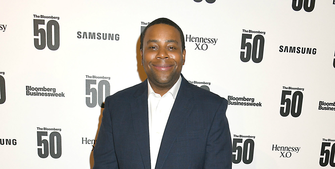Bruce Willis: ‘Nothing can keep me down – I’ve been attacked by terrorists, lawyers and baldness’
Bruce Willis declared nothing in life could beat him down in a now-poignant clip being shared by fans in the wake of confirmation his brain condition has developed into dementia.

Bruce Willis declared “nothing” could “keep him down” in a now-poignant clip being shared online in the wake of his dementia diagnosis.
The ‘Die Hard’ actor, 67, stepped away from acting last year when he was diagnosed with the brain disorder aphasia, and after his family announced on Thursday (16.02.23) it had developed into rare frontotemporal dementia (FTD), a video of him saying he couldn’t be beaten by life has been shared by fans.
He was speaking at the end of his 2018 Comedy Central roast when he said he had defeated threats from “terrorists to divorce lawyers to male pattern baldness” in his life and movies, which left him invincible.
Bruce says from the roast podium: “Nothing can keep me down – I’ve been attacked by terrorists, asteroids, film critics, music critics, divorce lawyers, male pattern baldness and none of it stopped me because I’m still Bruce f****** Willis.”
He also joked in the roast being himself was better than being US president.
The statement ended with Bruce taking a bow and the crowd erupting in applause, and fans have been sharing comments on how sad his diagnosis is alongside the footage.
A joint statement from Bruce’s five children as well as his wife Emma Heming, 44, and ex-wife Demi Moore, 60, posted on The Association for Frontotemporal Degeneration's website Thursday (16.02.23), said about his FTD diagnosis: “Our family wanted to start by expressing our deepest gratitude for the incredible outpouring of love, support and wonderful stories we have all received since sharing Bruce’s original diagnosis.
“In the spirit of that, we wanted to give you an update about our beloved husband, father and friend since we now have a deeper understanding of what he is experiencing.
“Since we announced Bruce’s diagnosis of aphasia in spring 2022, Bruce’s condition has progressed and we now have a more specific diagnosis: frontotemporal dementia (known as FTD.)
“Unfortunately, challenges with communication are just one symptom of the disease Bruce faces.
“While this is painful, it is a relief to finally have a clear diagnosis.
“FTD is a cruel disease that many of us have never heard of and can strike anyone. For people under 60, FTD is the most common form of dementia, and because getting the diagnosis can take years, FTD is likely much more prevalent than we know.
“Today there are no treatments for the disease, a reality that we hope can change in the years ahead. As Bruce’s condition advances, we hope that any media attention can be focused on shining a light on this disease that needs far more awareness and research.
“Bruce always believed in using his voice in the world to help others, and to raise awareness about important issues both publicly and privately.
“We know in our hearts that – if he could today – he would want to respond by bringing global attention and a connectedness with those who are also dealing with this debilitating disease and how it impacts so many individuals and their families.”
They added: “Bruce has always found joy in life – and has helped everyone he knows to do the same. It has meant the world to see that sense of care echoed back to him and to all of us.
The statement was signed off by Emma, Demi, and Bruce’s daughters Rumer, 34, Scout, 31, Tallulah, 29 – who Bruce had with Demi – and his girls Mabel, 10, and Evelyn, 8, who he had with Emma.
The actor’s rare condition – which consists of less than five per cent of all dementia cases – affects the lobes of the brain behind the forehead, which deal with behaviour, problem-solving, planning and emotions.
Symptoms can include personality changes, such as appearing rude, uninterested and unsympathetic, along with repeated, compulsive movements, hoarding and obsessions as well as craving unhealthy food.














